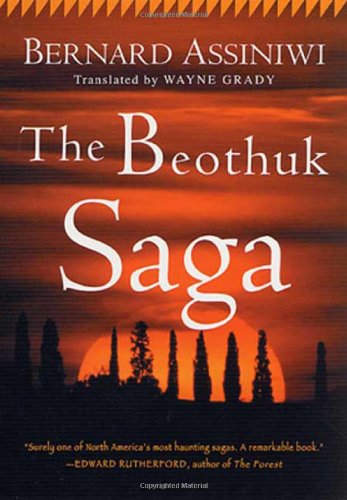The Beothuk Saga
Bernard Assiniwi, a member of the Cree nation, has intertwined his knowledge of native peoples with a lifetime of anthropological study to write an 800-year saga of the first natives of Newfoundland.
The novel is divided into three sections. The first tells the tale of Anin, who circumnavigates the island of Newfoundland and returns to his village years later with four wives and a host of new sexual customs. Their progeny become the Beothuk people. Here, Dr. Assiniwi proves himself an imaginative storyteller, capable of weaving his knowledge of native skills and recent anthropological findings into the fabric of a powerful single narrative. As the novel progresses, however, the novelist begins to struggle with the anthropologist. The second section of the book jumps ahead five hundred years, to a period of prosperity for the tribe, but also a time of increasingly violent contact with Europeans. Assiniwi’s prodigious imagination is curbed by his need to make a complete accounting of the historical record from the Beothuk point of view. In the final section, the Beothuk are a people harried and hunted, and the tale unwinds to its bitter end. Among the harrowing list of atrocities, no image strikes us more deeply than that of Shanawadithit, the last living Beothuk.
Dr. Assiniwi has written a powerful book chronicling the worst of any country’s colonizing past. One nagging question remains: Why were the Beothuk people killed off entirely, when other natives of the area – the Inuit, the Micmac – continued to thrive? On this we are left to ponder. And we do, for The Beothuk Saga is a novel that haunts long after the last page is turned.










